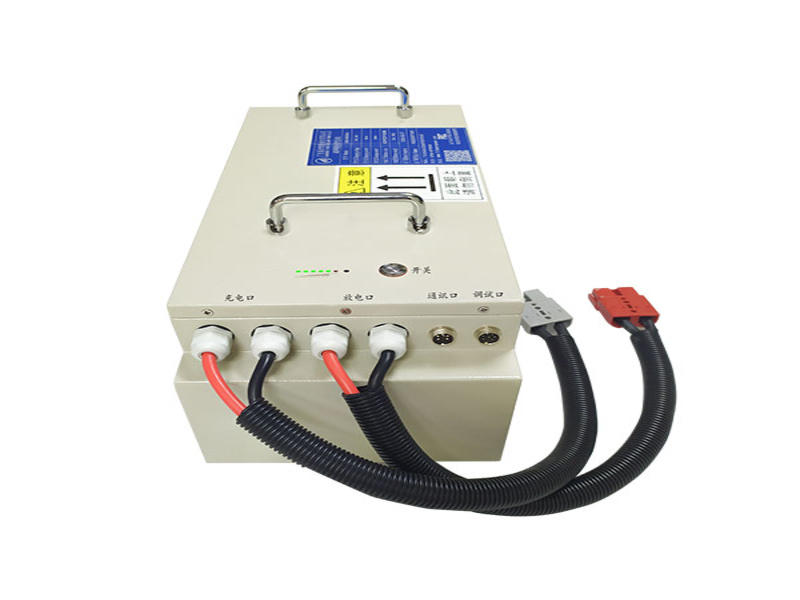 Types of new energy vehicle batteries? Kinds of new energy car batteries and their characteristics
Aug 30, 2022
Types of new energy vehicle batteries? Kinds of new energy car batteries and their characteristics
Aug 30, 2022
As new energy vehicles develop, there are more and more innovations in new energy vehicle batteries. China is vigorously developing new energy vehicles, with national and local subsidies and licensing restrictions making new energy vehicles increasingly the best choice for car buyers. Most consumers only care about the range of electric vehicles, but ignore the core power of electric vehicles, the "power battery". What types of batteries are available for new energy vehicles today? Types and characteristics of new energy vehicle batteries.
I. Lithium iron phosphate battery
Charging process, lithium iron phosphate in part of the lithium ion off, through the electrolyte transfer to the negative electrode, embedded in the negative carbon material; at the same time from the positive electrode to release electrons, from the external circuit to the negative electrode, to maintain the balance of chemical reactions. During the discharge process, lithium ions come out of the negative electrode and pass through the electrolyte to the positive electrode, while electrons are released from the negative electrode and reach the positive electrode from the external circuit to provide energy to the outside world.
Lithium iron phosphate battery features
1, high energy density. 2019 some excellent battery manufacturers can probably achieve an energy density of 175-180Wh/kg level, individual manufacturers using a stacking process, energy density of 185Wh/kg.
2, good safety performance, lithium iron phosphate cathode material electrochemical properties are relatively stable, which determines that it has a smooth charge and discharge platform, therefore, the structure of the battery will not change during the charge and discharge process, will not burn and explode, and even in short circuit, overcharge, extrusion, pinprick and other special conditions, is still very safe;.
3, long cycle life, lithium iron phosphate battery 1C cycle life is generally up to 2000 times, or even reach more than 3500 times, and for energy storage market requirements to reach more than 4000-5000 times to ensure 8-10 years of service life, higher than the cycle life of ternary batteries more than 1000 times, while the cycle life of long-life lead-acid batteries in about 300 times.
4, safe and environmentally friendly lithium iron phosphate batteries do not contain any heavy metals or rare metals, safe, non-toxic or non-polluting, for absolute green batteries. Due to the entire production process of lithium iron phosphate materials, clean and non-toxic, all raw materials are non-toxic and non-polluting.
Second, ternary lithium polymer batteries
Ternary polymer lithium battery refers to the positive electrode material using nickel drill lithium manganate (Li (NicoMn) O2) or nickel drill lithium aluminate ternary positive electrode material of lithium batteries, ternary composite positive electrode material is nickel salt, drill salt, manganese salt as raw materials, nickel drill manganese ratio can be adjusted as necessary.
The characteristics of ternary polymer lithium battery
1, high energy density, theoretical energy density reaches 280 mAh/g, the actual capacity density of the product exceeds 150 mAh/g.
2, good cycling performance, with excellent cycling stability at both room temperature and high temperature.
3. High voltage platform, stable and reliable cycling in the voltage range of 2.5-4.3/4.4V.
4、Long cycle life, maintaining more than 80% capacity for 500 cycles.
5, ideal crystal structure, small self-discharge, no memory effect.
III. Nickel-hydrogen battery
Nickel-metal hydride battery is a kind of battery with good performance. NiMH batteries are divided into high-voltage NiMH batteries and low-voltage NiMH batteries. The positive active material of the NiMH battery is Ni(OH)2 (called NiO electrode), the negative active material is metal hydride, also called hydrogen storage alloy (electrode called hydrogen storage electrode), and the electrolyte is 6 mol/L potassium hydroxide solution. Nickel-hydrogen batteries are increasingly being noticed as an important direction for hydrogen energy applications.
Features of NiMH batteries
1. High reliability, good protection against over-discharge and over-charging, high charge and discharge rates and no dendrite formation. It has good specific characteristics. Energy density of 60mAh/g.
2. Long cycle life, up to several thousand times.
3. Excellent low temperature performance, no significant change in capacity at -10°C.

 Types of new energy vehicle batteries? Kinds of new energy car batteries and their characteristics
Aug 30, 2022
Types of new energy vehicle batteries? Kinds of new energy car batteries and their characteristics
Aug 30, 2022